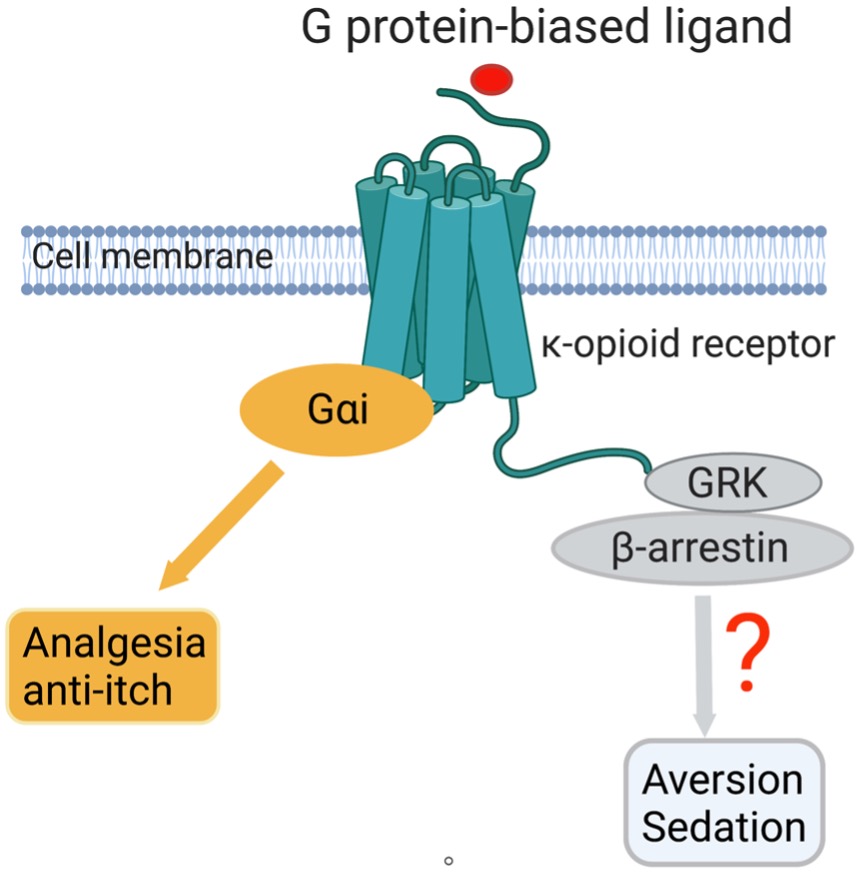In a recent study published in Nature Communications on March 11, 2023, Amal El Daibani, PhD, and colleagues aimed to provide an alternative rational for pathway-selective ligand design to develop new pain management drugs that are more effective, less addictive, and have fewer side effects.

In this study “Molecular mechanism of biased signaling at the kappa opioid receptor,” researchers closely examined the κ-opioid receptor (KOR), a molecule in the body that can be targeted by drugs to help manage pain and itch without causing addiction.
Moreover, Daibani and her colleagues used advanced techniques, such as x-ray crystallography and molecular dynamics simulations, to better understand the molecular structure and mechanisms of KOR drugs. They specifically studied its interaction with nalfurafine, the first clinically approved KOR-targeting drug, and discovered that it induces a specific conformational change. This change in the receptor makes it preferentially signal through the G protein pathway rather than the arrestin pathway, which could help avoid side effects. By understanding how these drugs work at a molecular level, scientists hope to develop pathway-selective chemical compounds as safer and more effective pain management drugs.
“These findings are very important because we can now do rational drug design to identify kappa drugs that are pain/itch-relieving but minus their adverse effects,” says Amynah Pradhan, director of the Center for Clinical Pharmacology. “It’s also a beautiful example of biological complexity where small differences in receptor dynamics could result in very meaningful physiological consequences. That’s pretty cool!”
Amal El Daibani is a postdoctoral research associate currently working in Dr. Tao Che’s lab at the Center for Clinical Pharmacology, a joint venture between Washington University School of Medicine in St. Louis and the University of Health Sciences and Pharmacy in St. Louis. Che holds a primary appointment as assistant professor in the Department of Anesthesiology at WashU. His lab has a primary research focus on gaining an atomic-level understanding of opioid receptor activation and signaling, and the ultimate goal of the research is to develop chemical and synthetic biologic tools to create safer and non-addictive pain medications. In addition to his research, Che is also a dedicated teacher and mentor. He has supervised graduate students and postdoctoral fellows and has received awards for his teaching and mentorship.
This work is in collaboration with Dr. Ron Dror’s group at Stanford University, as well as other scientists from University of North Carolina Chapel Hill, University of Southern California, Universität Münster, and Research Triangle Institute.
The Center for Clinical Pharmacology, established in 2015, is a joint venture between the University of Health Sciences and Pharmacy in St. Louis (UHSP) and the Department of Anesthesiology at Washington University School of Medicine in St. Louis.
The collaboration was created to find safer and more effective ways to use prescription medications. The center’s initial efforts were focused on translational and clinical research to better understand and improve the treatment of pain. Over the years, the center has diversified to include investigators engaged in a variety of research projects.